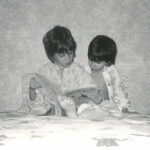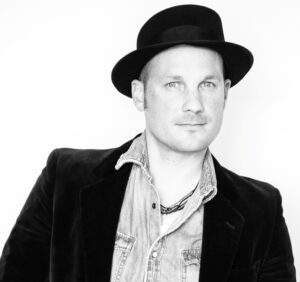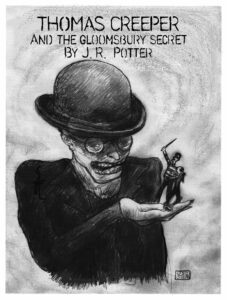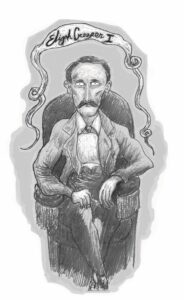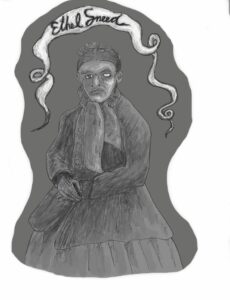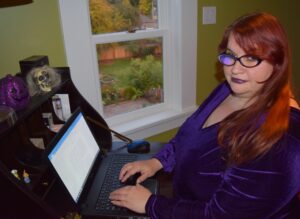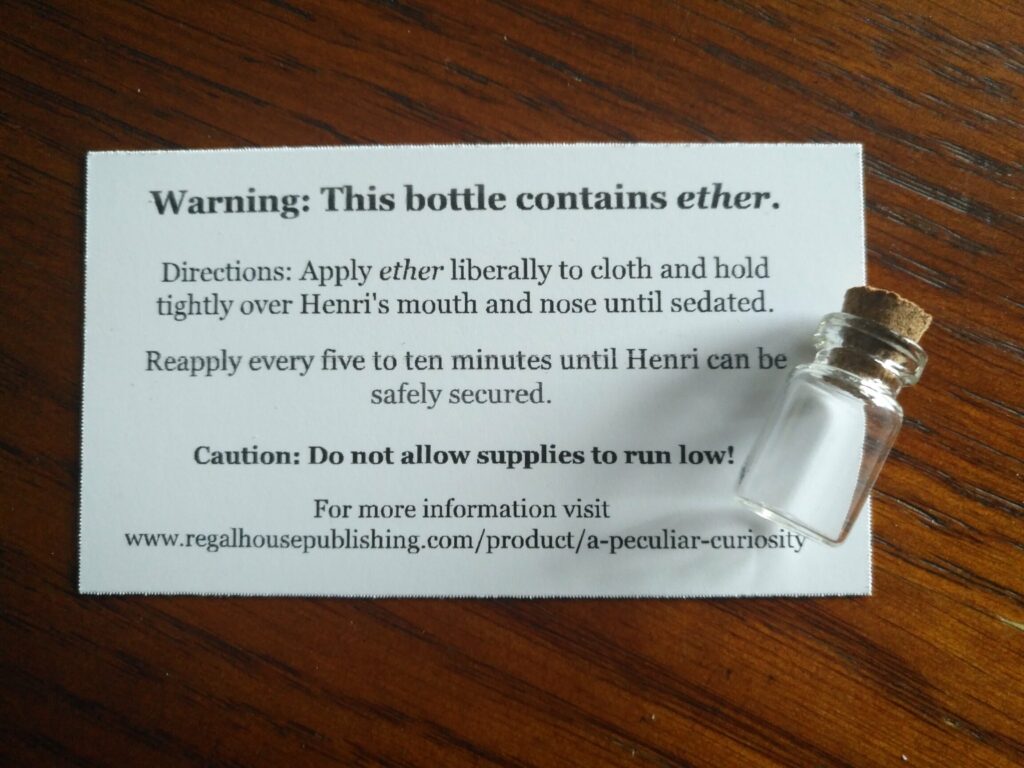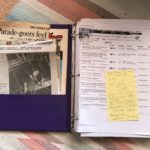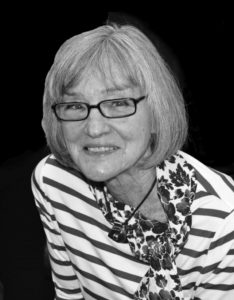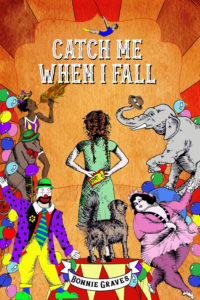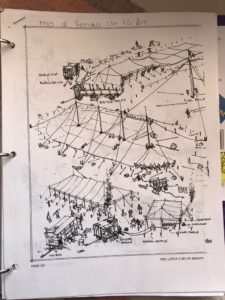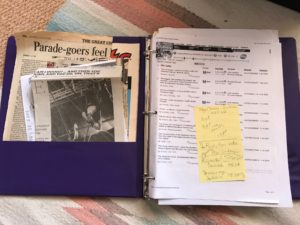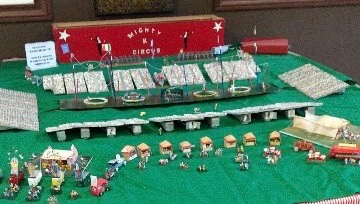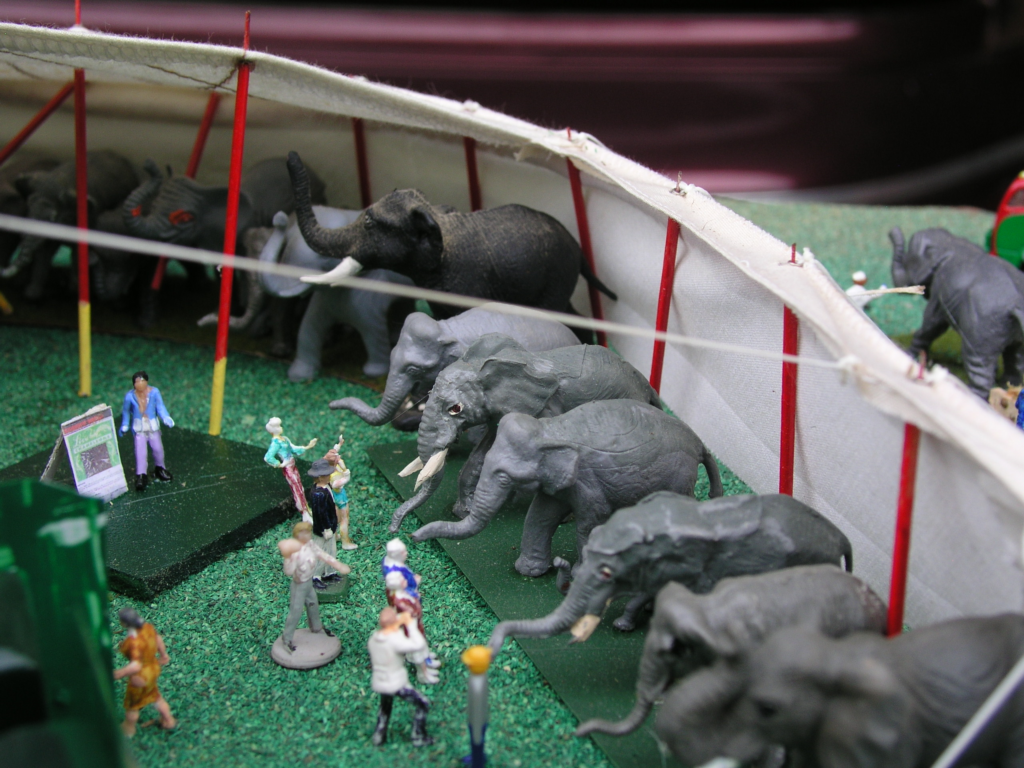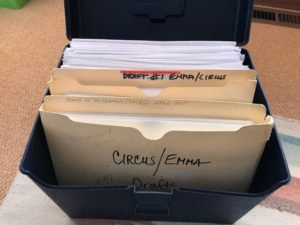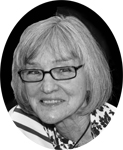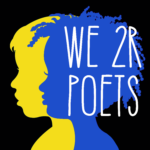Fitzroy Books staff were delighted to take the opportunity to hang out (virtually) with Brenda Ferber, a Kraken Book Prize finalist, to discuss the inspiration behind her upcoming award-winning work, Sing Something True. We hope you enjoy her answers as much as we did!
- Sing Something True was a finalist for the Kraken Book Prize for Middle Grade Fiction. Can you tell us what this has meant for you?
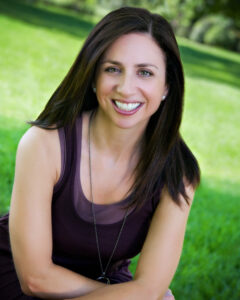
I was sitting in an ice cream shop in Berlin when I received the email telling me that Sing Something True was a finalist for the Kraken Book Prize. The news caused me to order extra hot fudge! There are so many people writing books and hoping to get published. I, myself, have written many. Some have been published, but others still languish inside my computer. So hearing that my latest novel won this prize meant the world to me. You never know if what you’re writing will resonate with readers, and this acknowledgement tells me, yes it did, and yes it will! I’m thrilled.
- Can you tell us a little about what inspired Sing Something True?
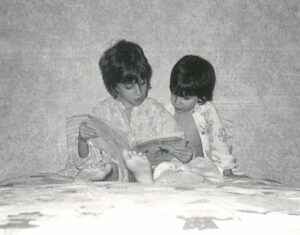
My sister, Micky, and I have been best friends ever since I was three years and three weeks old. That’s the day she was born. We happen to live miles apart, but we speak on the phone every day and are as close as ever. Micky has a wonderful husband and two darling daughters, who I’m madly in love with. Her older daughter has a disability. Specifically, she has a sensory processing and emotional regulatory disorder. She faces many challenges, as does the whole family. One morning, Micky called to tell me about a school assembly from the night before that did not go well. Since I don’t want to spoil my book, I won’t give the details, but suffice it to say that their whole family was distraught by the events that occurred. And when Micky told me about it, I was moved to tears. This was just one moment in my fabulous niece’s life. If I hadn’t written about it, I doubt she’d even remember it. But I felt inspired to explore it because I think the blessings and challenges that come with a child with a disability is something worthy of examining.
- How did that small moment evolve into Sing Something True?
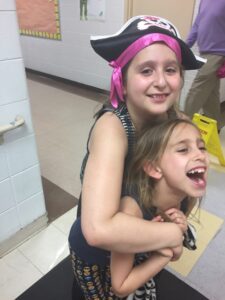
I decided to write the story from my other niece’s point of view. She’s the younger sister, and I imagined the experience from her perspective. Partly because I don’t feel I have the right to write from a neuro-divergent point of view when I’m neuro-typical, and partly because that niece is so sunshiny and sweet, and I wanted to understand that as well. Is she sunshiny as a coping strategy, or is that her natural way of being? There are many benefits to being known as the sweet and easy one, but what are the costs? I was curious.
I still remember the day I gave the first draft of the story to my critique group. At this point, it was only about the assembly gone wrong. I was all, “This is probably nothing. I just felt compelled to write it. Feel free to tell me to stick it in a drawer.” Well, my brilliant critique group did not allow me to stick it in a drawer. In fact, they encouraged me to expand it into a novel. So that’s what I did. Over the course of a couple years, I expanded it again and again, and it became a much larger story, which is no longer exactly my nieces’ story, though they will recognize themselves in it.
My revision process is really fun. Each pass feels like I’m seeing the manuscript with brand new eyes. I actually imagine that someone has gifted me the prior draft and now I’m allowed to do whatever I want with it. During one revision, I added a magical talking bird to the story. I loved the bird, but I wasn’t sure it was working, and I was trying to decide what to do about it. Then, I opened my front door, and there on the stoop in front of me was a dead bird. I thought, Shoot! This is a bad sign! But I’m an optimist at heart, so I thought some more and decided the dead bird didn’t mean I should kill off the bird in my book entirely. However, I did decide to make the bird a real bird, not a talking bird. And then I decided Cassidy would name the bird Shel Silverstein, which just made me giggle. Soon, he became an integral part of the book, and I can’t imagine the story without him. That’s a perfect example of my revising/expanding process: open-minded, experimental, ready for magic to occur.
- You present, in this work, an honest picture of the family dynamics with a child with a disability. Yet, while Sophie (who has been diagnosed with Sensory Processing Disorder) experiences challenges of her own, she is courageous and brave and provides inspiration to her sister, Cassidy. What, to you, is important about writing about children with disabilities in middle grade fiction?
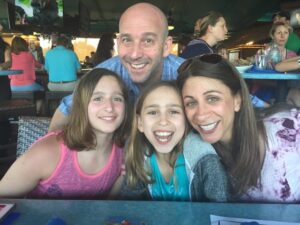
The funny thing is that whenever I tell anyone about this book, they relate. They either have a person in their family with a disability, or they are close with someone who does. I believe middle grade readers have open hearts and open minds. I can think of no better audience for a book about the ups and downs of life with a disability, whether it’s your life, someone in your family’s life, someone in your classroom’s life…whatever. I hope that I successfully drew Sophie in a way that shows her strengths and abilities as well as her unique way of experiencing the world. She is so much more than her disorder. And I hope I captured the complexities of her relationship with Cassidy in as real and as loving a way as possible.
- What lessons would you like your readers to draw from this work?
First and foremost, I’d love for readers to be entertained by Sing Something True. I think it’s a fun book to read, and I hope they will agree. Secondly, we tend to want our children to be nice and sweet and polite all the time. But it’s just as important to teach them how to assert themselves in respectful ways. It takes courage to be authentic and to speak up in scary or socially intimidating situations. If readers are inspired by Cassidy to be more assertive, I’d be thrilled. And if they come away from the reading experience with a little more empathy for kids with disabilities or families dealing with those disabilities, then that is icing on the cupcake.
- Can you tell us a little about your process of selecting your title? This can be a difficult task for writers – but this title is absolutely perfect. What does it mean to you?
Oh my gosh, thank you so much! Titles are normally so hard for me, but I agree that I knocked this one out of the park. For a long time, the book had a different title, but I knew it wasn’t a great one. So I read the book, looking for a phrase that might possibly work as a title. When I came upon the scene where Cassidy’s voice teacher tells her to sing something true, I realized that was the theme of the book in a nutshell. So I grabbed it.
- What are you working on next?
I’m actually stepping out of my children’s book writing comfort zone and am working on a memoir about how my daughter and I survived her adolescence, one that included sexting, self-harm, and attempted suicide. It’s a labor of love that we’ve been working on together for several years. I’m not sure what will happen with the memoir, but I’m happy to say that my daughter is rocking adulthood and making the world a better place.
